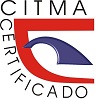Formation of values in primary school
Formation of values in primary school
Keywords:
training values, primary school, political preparationAbstract
The integral formation of the new generations is the essential objective of the process of transformations that are carried out in the educational sector, to guarantee the historical continuity of the Revolution, especially in the current moments in which imperialism intends to undermine the integrity of the homeland. That is why the pedagogical task grows, multiplies day by day to educate the new generations in the values of the Revolution and Socialism. Political and comprehensive preparation is a challenge to be able to face the new challenges of social development and transformations economic, technological and environmental problems that we will have to face for the future. In the research, the methods of scientific research are specified: theoretical, empirical and mathematical. Given the revolutionary transformations that have taken place in Cuba, the need to strengthen the formation of values in the new generations through a solid process of assimilation in which both the cognitive and the affective influences is appreciated, which is why Cuban education aims to The comprehensive general education of the new generations is fundamental and an important element to achieve it is the strengthening of the moral values that our boys and girls have and especially the value referred to love of the homeland.
Downloads
References
Carrasco-Lozano, M.E y Veloz-Méndez, A. (2014). Aprendiendo valores desaprendiendo violencia, un estudio con niñas y niños de escuelas de educación básica en el estado de Hidalgo. Ra Ximhai Vol. 10, Número 7 Edición Especial, julio – diciembre. https://www.redalyc.org/pdf/461/46132451004.pdf
Fabelo, Corzo, J. R. (2004). Los valores y sus desafíos actuales. Colección Insumos Latinoamericanos. Disponible en: www.librosenred.com
Gómez Canett, J (2020). Formación de valores inclusivos desde el Proyecto Educativo Institucional. Revista Horizonte Pedagógico. 9(4). En Internet (versión electrónica) Disponible en: http://www.horizontepedagogico.rimed.cu
Pinto Archundia, R. (2016). La importancia de promover los valores del hogar hacia las escuelas primarias. Ra Ximhai, 12(3). https://doi.org/10.35197/rx.12.02.2016.18.rp
Rea Alvear, S. P., & Castro Salazar, A. Z. (2021). Sistema de actividades educativas basadas en el Aprendizaje Colaborativo para Ciencias Naturales. Revista Arbitrada Interdisciplinaria Koinonía, 6(Extra 3), 201-225.
Rodríguez OBM, Suárez HA, Morales FY. (2014). Sistema de actividades educativas para fortalecer el valor honestidad en los estudiantes del primer año de la carrera de Bibliotecología en la enseñanza técnica y profesional. Mediciego.20(Suppl: 1). https://www.medigraphic.com/cgi-bin/new/resumen.cgi?IDARTICULO=50612
Romero Ramos, L. López Domínguez, S. y Rivera Serrano, A. (2020): Conjunto de actividades para mejorar los aspectos paisológicos en séptimo grado, Revista Atlante: Cuadernos de Educación y Desarrollo. En línea: https://www.eumed.net/rev/atlante/2020/03/actividades-aspectos-paisologicos.html
Published
How to Cite
Issue
Section
License
Copyright (c) 2022 Estela Rodríguez Ramos , María Madera Gómez , Yanelis Rodríguez Ramos

This work is licensed under a Creative Commons Attribution 4.0 International License.
Horizonte Pedagógico es una revista Open Access, lo que quiere decir que todo su contenido es accesible libremente sin cargo para el lector o su institución. Los usuarios están autorizados a leer, descargar, copiar, distribuir, imprimir, buscar o enlazar a los textos completos de los artículos de esta revista sin permiso previo del editor o del autor, de acuerdo con la definición BOAI de open access. Los autores que publican en esta revista están de acuerdo con los siguientes términos: Los autores conservarán los “Derechos de autor” y garantizan a la revista el derecho de ser la primera publicación del trabajo. La revista se encuentra protegida bajo una licencia internacional de Creative Commons Attribution License Atribución 4.0 Internacional (CC BY NC 4.0), que permite a otros compartir (copiar y redistribuir el material en cualquier medio o formato) y adaptar (remezclar, transformar y construir a partir del material), para cualquier propósito, incluso comercialmente. Bajo las siguientes condiciones: atribución (usted debe dar crédito de manera adecuada, brindar un enlace a la licencia, e indicar si se han realizado cambios y no comercial — Usted no puede hacer uso del material con propósitos comerciales. Puede hacerlo en cualquier forma razonable, pero no de forma tal que sugiera que usted o su uso tienen el apoyo de la revista o el autor de la publicación.






















